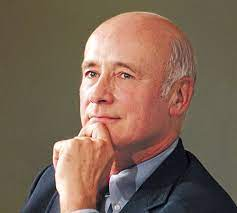Public Diplomacy & Soft Power

JOSEPH S. NYE JR.
Professor & Former Dean of Harvard’s Kennedy School of Government.
PhD in political science from Harvard.
He published in 2004
- Soft Power: The Means to Success in World Politics : a Washington Novel.
- The Power Game: 2008, The Powers to Lead.
Fellow of :
The American Academy of Arts and Sciences.
The British Academy.
Academy of Diplomacy.
“ Effective public diplomacy is a two-way street that involves listening as well as talking. We need to understand better what is going on in the minds of others and what values we share. That is why exchanges are often more effective than mere broadcasting. By definition, soft power means getting others to want the same outcomes you want, and that requires an understanding of how they are hearing your messages and adapting them accordingly. It is crucial to understand the target audience. Yet research on foreign public opinion is woefully underfunded. Preaching at foreigners is not the best way to convert them. Too often, political leaders think that the problem is simply that others lack information, and that if they simply knew what we know, they would see things our way. But all information goes through cultural filters, and declamatory statements are rarely heard as intended. Telling is far less influential than actions and symbols that show as well as tell.”
SOFT POWER SOURCES, REFEREES, AND RECEIVERS
| Sources of Soft Power | Referees for Credibility or Legitimacy | Receivers of Soft power |
| Foreign policies | Governments, media, nongovernmental organizations (NGOs), intergovernmental organizations (IGOs) | Foreign governments and publics |
| Domectic value and policies | Media, NGOs, IGOs | Foreign governments and publics |
| High culture | Governments, NGOs, IGOs | Foreign governments and publics |
| Pop culture | Media, markets | Foreign publics |